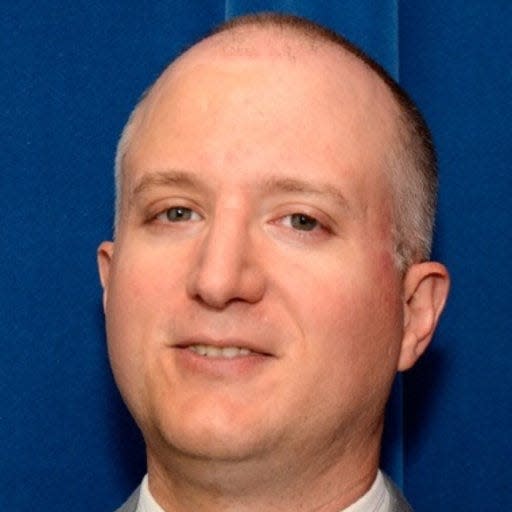Opinion: Make Iowa more competitive through occupational licensing reform
- Oops!Something went wrong.Please try again later.
Gov. Kim Reynolds is working hard to grow Iowa’s economy. By following fiscal conservatism, lowering tax rates, and reducing barriers to occupational freedom, Iowa is becoming more economically competitive. This is essential, as Iowa is competing with other states for jobs and people. In order to make Iowa even more competitive, policymakers should reduce barriers to employment by implementing further reforms to occupational licensing.
Iowa has made substantial progress in reducing barriers to employment by reforming occupational licensing. The reform law, which passed in 2020, allows for universal recognition of out-of-state licenses, waives licensing fees for low-income individuals, and establishes a standard for a fairer review process if a license is denied based on past criminal convictions.
The Knee Center for the Study of Occupational Regulation at West Virginia University has studied the economic and employment benefits of universal recognition. States that have enacted universal recognition are not only able to attract more workers from other states, but also bring more current state residents back into the workforce. In fact, Iowa is one of four states that had the largest employment gains as a result of the passage of universal recognition.
Even after this reform, Iowa still has occupational barriers. The Archbridge Institute released a study ranking the states regarding barriers and licensing requirements for occupations. Iowa is ranked 26th in the nation and fourth in the region. Overall, Iowa has at least 180 licensing and 150 barriers that apply to various occupations.
Some occupational licenses in Iowa are uniquely restrictive. In Iowa, aspiring barbers are required to complete 2,100 hours of education and training. Compare this with New York, where barbers are required to complete less than 300 hours of education and training. Discrepancies like these deserve further review.
Occupational licensing reform does not mean a “free-for-all” termination of all licensing. It means creating a more transparent process that reviews licenses and their associated requirements to see if they are appropriate or if they serve as a barrier to make it more difficult for individuals to enter into a certain occupation. As an example, Nebraska requires that an occupational license be reviewed every five years by the appropriate legislative committee. The legislative committees are tasked with reviewing occupational regulations and issuing a report that recommends “ending, modifying, or maintaining these regulations.”
Reform should not stop at universal recognition, but also include a regular review process for licenses and boards. Greater transparency is needed to review the numerous licenses and boards in order to ensure that they are not restricting the ability for an individual to earn a living.
In reviewing licenses and boards, policymakers should consider both sunrise and sunset measures. Existing licenses and boards should undergo a regular review process and be subject to a sunset provision that would require the legislature to renew after the review process.
Any new license or board should also be subject to a sunrise provision, which would require a review to make sure that the proposed license or board is needed and does not restrict occupational freedom.

In January, Reynolds issued an executive order to begin to reform regulations in Iowa. In her Condition of the State address, she said that the intent of the executive order is to “begin the process of lifting this dead weight from our economy over the next four years.” Further, the legislature passed a historic state government reform measure that Reynolds proposed to begin streamlining government and making it more efficient. A part of the government reform measure builds on the 2020 occupational licensing reform by consolidating a majority of licensing activities into a single department.
Reducing occupational licensing barriers will create more economic freedom for individuals to pursue a living as well as continue to grow Iowa’s economy and help resolve our workforce challenges.
John Hendrickson serves as policy director for Iowans for Tax Relief Foundation and Edward Timmons, Ph.D., is director of the Knee Center for the Study of Occupational Regulation at West Virginia University and a senior research fellow with the Archbridge Institute.
This article originally appeared on Des Moines Register: Opinion: Make Iowa more competitive through licensing reform
